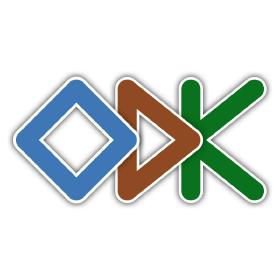In the world of healthcare, timely and accurate data collection is the backbone of effective decision-making and quality patient care. Traditionally, healthcare data collection had been a cumbersome and error-prone process. It involved extensive paperwork and manual data entry processes that were not accurate. However, the emergence of Open Data Kit (ODK) revolutionized all these processes. This has therefore helped pave the way for a new era of patient-centric care.
ODK is primarily used by organizations working in humanitarian aid and global development. Notable users include World Health Organization, International Red Cross and the Carter Center. It has gained popularity due to its adaptability, cost-effectiveness and suitability for various data collection scenarios, especially in remote and resource-limited areas. Let’s examine what exactly it is and how it revolutionizes healthcare data collection.
Contents
- 1 Understanding ODK
- 2 How ODK Revolutionizes Healthcare Data Collection
- 2.1 1. It Streamlines Data Collection in Remote and Resource-Limited Areas
- 2.2 2. ODK Enhances Real-Time Data Capture
- 2.3 3. It Promotes Customizable Forms for Diverse Healthcare Needs
- 2.4 4. ODK Improves Data Accuracy and Quality
- 2.5 5. Effortless Integration with Existing Health Systems
- 2.6 6. ODK Promotes Research and Public Health Initiatives
- 3 Key Take-Aways
Understanding ODK
Open Data Kit (ODK) is a free and open-source set of tools designed to simplify and streamline mobile data collection. It provides a flexible platform for creating, collecting and managing data using mobile devices.
ODK was initially developed by the University of Washington’s Department of Computer Science & Engineering and has since become a widely adopted solution across various industries. Its open-source nature has encouraged a strong community of developers thereby leading to improvements and continued support.
The ODK suite consists of several components that work together to facilitate efficient data collection and management. They include:
1. ODK Collect
This is the primary data collection app that runs on Android devices. It allows users to fill out digital forms (surveys, questionnaires, etc.) even in offline settings, where internet connectivity may be limited or absent. Once online, the data can be easily synced with the server.
2. ODK Build
ODK Build is a web-based form designer that enables non-technical users to create and customize digital forms without any coding knowledge. It provides a user-friendly interface for form creation and offers drag-and-drop functionality.
3. ODK Aggregate
ODK Aggregate is a server application that serves as the backend for storing, managing, and analysing collected data. It receives data submissions from ODK Collect and stores them in a centralized database for further processing and reporting.
4. ODK Briefcase
ODK Briefcase is a tool that allows users to transfer data between ODK Collect and ODK Aggregate, even in offline environments. It facilitates data synchronization by pulling data from mobile devices and pushing it to the server or vice versa.
5. ODK Central
ODK Central is an alternative to ODK Aggregate, providing a more modern and user-friendly web interface for data management and synchronization. It simplifies server setup and maintenance, making it accessible to a broader audience.
Read Also: Importance of OpenHDS to Healthcare Workers
How ODK Revolutionizes Healthcare Data Collection
1. It Streamlines Data Collection in Remote and Resource-Limited Areas
One of the most significant advantages of ODK in healthcare is its ability to streamline data collection in remote and resource-limited areas. Healthcare providers can utilize mobile devices such as smartphones and tablets to capture patient information directly at the point of care.
This empowers frontline healthcare workers, including community health workers and field researchers, to gather essential data even in locations with limited connectivity. ODK’s offline data collection capabilities ensure that critical patient data is not lost. This ultimately leads to improved access to healthcare services in remote and underserved regions.


2. ODK Enhances Real-Time Data Capture
In healthcare management, the ability to capture data in real-time is crucial for impactful interventions. ODK enables healthcare providers to capture patient data in real-time, thereby eliminating delays that can arise from traditional collection methods.
Whether it’s medication records or treatment plans, ODK ensures that healthcare professionals have access to the most up-to-date patient information at their fingertips. Real-time data capture facilitates faster diagnosis, treatment adjustments and improved patient outcomes especially in emergency situations.
3. It Promotes Customizable Forms for Diverse Healthcare Needs
In data collection, customization is crucial when capturing details that may be relevant but was not anticipated. ODK’s user-friendly form builder allows healthcare organizations to create customizable data collection forms tailored to their specific needs.
Whether it’s a patient intake form or a health assessment questionnaire, ODK’s flexibility ensures that data collection aligns precisely with the organization’s requirements. Moreover, the ability to add skip logic and multimedia elements such as images and audio recordings enhance data richness.
4. ODK Improves Data Accuracy and Quality
One of the most significant challenges in healthcare data collection is ensuring accuracy and data quality. ODK addresses this concern with built-in validation rules and error checks. This has the benefit of reducing the likelihood of data entry errors.
Additionally, the platform’s electronic data capture also eliminates the need for manual transcription, thereby minimizing the risk of data inconsistencies. By promoting high-quality data, it empowers healthcare professionals to make well-informed decisions and enhance the reliability of outcomes.
5. Effortless Integration with Existing Health Systems
ODK’s versatility extends to its seamless integration with existing healthcare systems and electronic medical record (EMR) platforms. This interoperability ensures that data collected using ODK can be easily shared and accessed by relevant stakeholders such as physicians and administrators.
It therefore enables healthcare teams to collaborate more effectively and deliver coordinated care based on a holistic view of a patient’s history. This has the added benefit of impactful healthcare interventions amongst vulnerable groups.
6. ODK Promotes Research and Public Health Initiatives
Beyond individual patient care, it plays a crucial role in advancing research and public health initiatives. Researchers can leverage ODK’s data collection capabilities to conduct large-scale surveys, clinical trials and health outcomes research.
Moreover, public health agencies can use it to monitor disease outbreaks, track vaccination coverage and assess health facilities in underserved regions. This therefore supports evidence-based policy-making and resource allocation.
Key Take-Aways
The Open Data Kit has brought about a paradigm shift in healthcare data collection, thereby empowering healthcare providers with a powerful tool to collect, manage and analyse patient information efficiently. From remote areas with limited resources to bustling healthcare facilities in urban centres, ODK revolutionizes the way healthcare data is gathered, leading to better patient care, improved research outcomes, and more effective public health interventions.
As it continues to evolve and expand its capabilities, we can expect healthcare data collection to become even more patient-centric, data-driven, and transformative in the years to come. It’s therefor crucial to upskill in ODK in order to harness its full potential. Indepth Research Institute (IRES) offers corporate training programs on ODK that would help you harness its power for successful healthcare data collection . Our training programs are specially curated and tailor-made to meet your needs, requirements and challenges. By acquiring and refining these skills, you will position yourself for success in today’s data-driven healthcare environment. Register now and be the best version of yourself!
[wpforms id=”1173″]
We have a firm belief that every organization has a unique purpose only they can fulfil in this world. We work with you in organizing your resources to exploit opportunities so that you can fulfil your purpose and realize full potential. We build the capacity of people, processes and systems for organizational success and growth as well as nurturing a thriving ecosystem.
Ready to enhance your skills and boost your career? Explore our corporate training programs now and start your journey to success.








Comment here